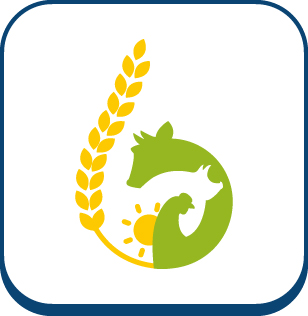The influence of source of energy and energy density on feeding behaviour, performance and carcass characteristics of growing pigs
Ajouter à ma liste
Auteurs :
Levasseur P, Courboulay V, Meunier-Salaün MC, Dourmad JY, Noblet J
Individual feeding behaviour and performance of 96 pigs LW x Pi, raised in heterosexual groups, and fed ad libitum were measured from 35 to 105 kg with 4 diets: basal with cereal and soybean meal (9.9 MJ NE/kg; R1), fat enriched (10.7 MJ NE/kg; R2), high fibre (9.0 MJ NE/kg; R3) and isoenergetic to R1 with fat and fibre addition (R4). The results show that castrated males eat more than female (2557 vs. 2183 g/d), have an extra meal each day (6.5 vs. 5.6); meal size is comparable for both sexes (424 g). Fat addition (R2 vs. R1) reduce feed intake (2295 vs. 2394 g/d) but energy intake is increased (23.9 vs. 22.8 MJ NE/d) especially in the first part of growth; it also improves growth rate (933 vs. 866 g/d) and feed efficiency (2.51 vs. 2.77) without any significant change of carcass quality. The addition of fibre (R3 vs. R1) is associated with an increase of feed intake (2534 vs. 2394 g/d) and feed efficiency (2.90 vs. 2.77) and the rate of intake is reduced (37.1 vs. 42.5 g/min.). Simultaneous addition of fiber and fat (R4 vs. R1) induce a slight decrease of daily feed intake, restores the rate of intake and does not alter growth rate and carcass quality. The efficiency of NE intake (26.7 MJ NE/kg) is not influenced by diets characteristics.
Fiche technique
Titre :
The influence of source of energy and energy density on feeding behaviour, performance and carcass characteristics of growing pigs
Date sortie / parution :
1998
Référence :
Journées de la Recherche Porcine (Fra), 1998, Vol. 30, p. 242-252









